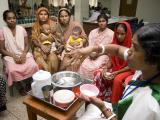Up to 75% of adults have concealed an infectious disease from others in order not to miss work, travel, or social events, according to a new study in Psychological Science.
The article, by researchers at the University of Michigan, is based on four studies and surveys given to 4,110 survey participants. All surveys were given after March 2020, when the COVID-10 pandemic began, and initial survey participants included 399 university healthcare employees.
Only 5% of participants across all studies said they had concealed a COVID-19 infection.
85% of students concealed illness
In the first study, the researchers surveyed 399 university healthcare employees and 505 students and asked how often they actively covered up symptoms of infectious diseases from others, came to campus or work without telling others they were feeling ill, or falsified answers to mandatory symptom screening tools that the university had required for anyone using campus facilities.
Eighty-five percent of students reported concealing a contagious illness, as well as 61% of healthcare workers. Only 8% of healthcare workers and 3% of students said they concealed illness due do a university policy requirement. Instead, almost all efforts at hiding were made because of not wanting to miss social engagements, school, or work.
"Thematic qualitative coding revealed that participants frequently concealed illness because their illness would conflict with their other social goals (e.g., going on a date); very infrequently they cited pressure from institutional policies (e.g., lack of paid time off) as a motivation for concealment," the authors wrote.
Transmissibility, symptom severity matter
The second study was conducted on August 1, 2023, and asked 946 participants how and when they would consider hiding an infectious illness—but not COVID-19. Participants said they would consider concealment when the illness was described as being moderately transmissible and as having mild symptoms.
A third study of 603 participants showed that illness duration—whether long or short—was not a strong factor in concealment.
Currently sick participants reported concealing more than participants who merely imagined being sick.
The fourth study included surveying both healthy and sick participants. The authors found that healthy participants reported being more likely to conceal when the potential harm of their imagined illness was low than when it was high, as did currently sick participants.
"Currently sick participants reported concealing more than participants who merely imagined being sick," the authors said.
The authors said their findings revealed an insensitivity among most participants.
"Healthy people forecasted that they would be unlikely to hide harmful illnesses—those that spread easily and have severe symptoms—but actively sick people reported high levels of concealment regardless of how harmful their illness was to others," said Wilson N. Merrell, a doctoral candidate and lead author of the study, in a press release from the Association for Psychological Science, which publishes the journal.




















